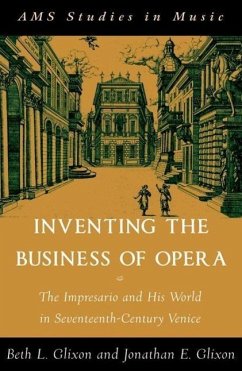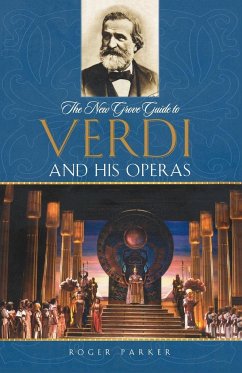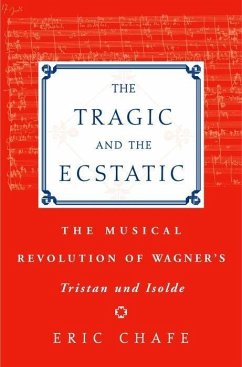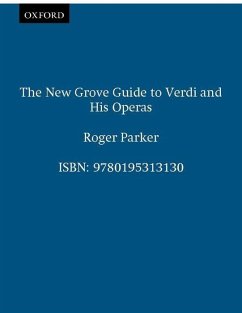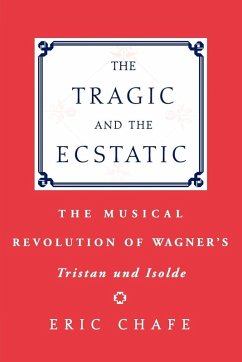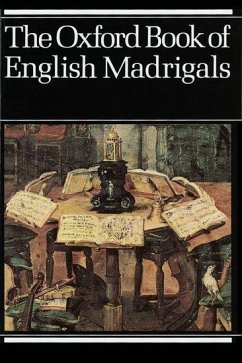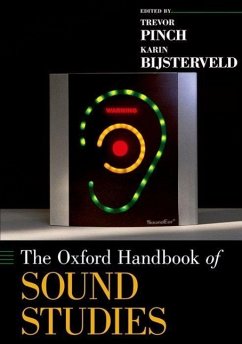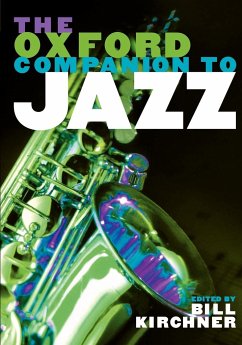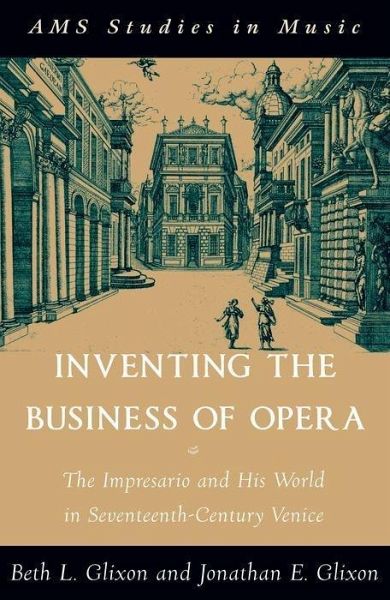
Inventing the Business of Opera
The Impresario and His World in Seventeenth-Century Venice
Versandkostenfrei!
Versandfertig in 1-2 Wochen
165,99 €
inkl. MwSt.
Weitere Ausgaben:

PAYBACK Punkte
83 °P sammeln!
Marco Faustini was among the most active and successful professionals in seventeenth-century Venetian opera. As an impresario, he was responsible for every facet of production from contracting the cast to balancing the books at the season's end. Through examination of Faustini's documents - including personal papers, account books, and correspondence - Beth and Jonathan Glixon provide a comprehensive view of opera production in mid-seventeenth century Venice. For the first time, an emphasis is placed on the "physical production," the scenery, costumes, and stage machinery that tied these opera productions to the social and economic life of the city.
In mid-seventeenth-century Venice, opera first emerged from courts and private drawing rooms to become a form of public entertainment. Early commercial operas were elaborate spectacles, featuring ornate costumes and set design along with dancing and music. As ambitious works of theater, these productions required not only significant financial backing, but also strong managers to oversee several months of rehearsals and performances. These impresarios were responsible for every facet of production from contracting the cast to balancing the books at season's end. The systems they created still survive, in part, today. Inventing the Business of Opera explores public opera in its infancy, from 1637 to 1677, when theater owners and impresarios established Venice as the operatic capital of Europe. Drawing on extensive new documentation, the book studies all of the components necessary to opera production, from the financial backing and the issue of patronage to the commissioning and creation of the libretto and the score; the recruitment and employment of singers, dancers, and instrumentalists; the production of the scenery and the costumes; and the nature of the audience. The authors examine the challenges faced by four separate Venetian theaters during the seventeenth century, and focus particularly on the progress of Marco Faustini, the impresario most well known today. Faustini made his way from one of Venice's smallest theaters to one of the largest, and his advancement provides a personal view of an impresario and his partners, who ranged from Venetian nobles to artisans. Throughout the book, Venice emerges as a city that prized novelty over economy, with newrepertory, scenery, costumes, and expensive singers the rule rather than the exception. Through close examination of an extraordinary cache of documents--including personal papers, account books, and correspondence--Beth and Jonathan Glixon provide a comprehensive view of oper




